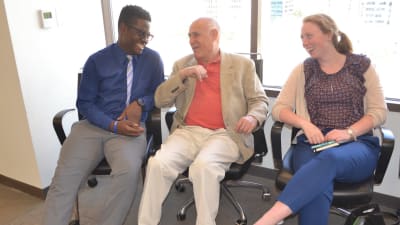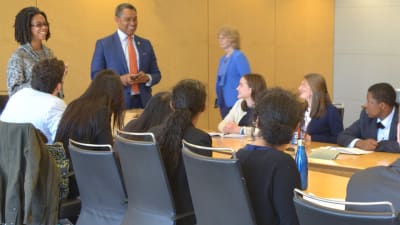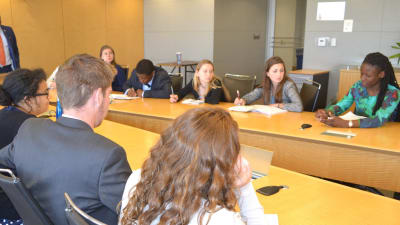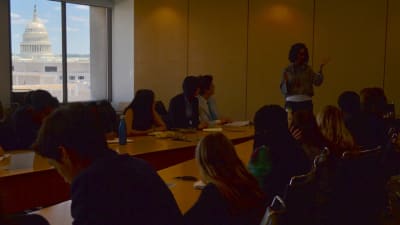Diversity, Inclusion, and Equity at SEGL
SEGL’s founding team wrote diversity into our mission statement. As powerful as diversity is here (for example, we have a need-blind admissions policy and 50% of our 2016-17 students are of color), we know that numbers alone are not enough. What are we doing to ensure all students are welcome here? How do we ensure each student has what she or he needs to succeed?
We don’t have all the answers to these questions: diversity, inclusion, and equity is an intellectual and interpersonal journey. We do know, however, that the journey starts with our mission and our institution’s full commitment.
Each semester, our journey starts with our students. As young leaders, each of them has a story, and with the right nurturing, each can use her or his story to teach others. In advisor meetings, academic classes, and residential community-building, our teachers work to provide this nurturing.
This semester, we held a series of discussions at our weekly School Meeting to prompt student learning. Topics included religion, class, race, and political differences. Often these discussions started with a series of paired statements designed to provoke student thought. Here are a few from the religion discussion:
When people express their religious views, I feel unsafe.
I only feel safe in a community of faith.
Why would any intelligent person choose to believe in God?
Why would any intelligent person not choose to believe in God?
SEGL is not a place for religion.
Religion is especially important at a place like SEGL.
At SEGL, we treat all religions equally.
At SEGL, some religions are better than others.
Religion makes the world better.
The world would be better without religion.
Our faculty is there to facilitate, not to press students to a predetermined goal. By convening without judgement, we can help create a space where students become comfortable sharing difficult stories and opposing viewpoints. These stories and viewpoints create new understandings and a stronger community.
We also use our Friday evening “Flex Period” to explore challenging questions of difference. One exercise asked students to fill out a sheet with the following prompts:
I am NOT:
I am NOT:
I am NOT:
I AM:
Another exercise asked students to read two competing articles about what some call “white privilege”: the first a longstanding classic by Peggy McIntosh, the second a newer op-ed by the Princeton student Tal Fortgang.
In both of these exercises, teachers serve as conveners, not convincers, allowing the best ideas to rise to the top through dialogue, questions, and story-sharing.
Sometimes, the students want to lead their own discussions. Earlier this semester, a student organized a trip to see the documentary “I Am Not Your Negro”; later, another student led a conversation about the movie “Get Out.” And student initiative brought us to a recent event on gentrification featuring the author Ta-Nehisi Coates (yes, two students got to ask a question!). As adults, we can help students navigate pedagogical landmines and help them build confidence as facilitators of challenging conversations.
We also regularly review our curriculum with questions of diversity, inclusion, and equity in mind. This semester, for example, we added a mini-case study on juvenile justice that brought us to the DC Attorney General’s office. Students got to meet with DC’s Deputy Attorney General Natalie Ludaway, Attorney General Karl Racine, and Racine’s Chief of Staff Elizabeth Wilkens. In an era when Black Lives Matter and Blue Lives Matter seem to be playing a zero sum game, meeting with the three highest-ranking law enforcement officials in the DC government–each African American–was particularly poignant.
Where appropriate, we also infuse our existing curriculum with these questions. For example, when we read Curtis Sittenfeld’s gripping “Your Life as a Girl,” we now ask whether Sittenfeld’s “you” is speaking for all girls, or just some, and our teachers regularly play devil’s advocate when a particular political perspective is missing in a discussion.
These steps are just a few along our journey toward making SEGL a better place. That journey can be a little messy and uncomfortable, but it is essential. In semesters ahead, we look forward to learning and doing even more.



































